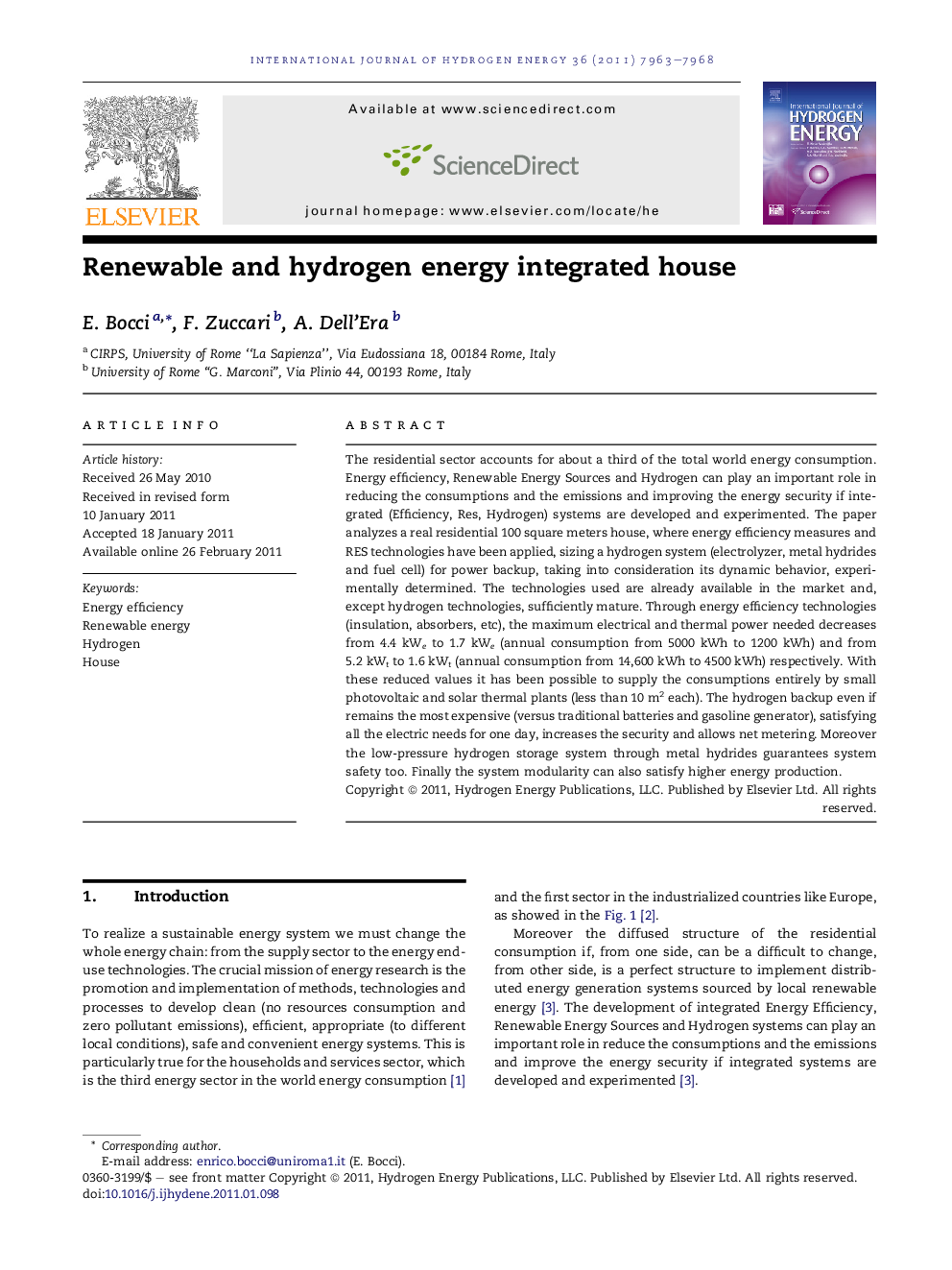| Article ID | Journal | Published Year | Pages | File Type |
|---|---|---|---|---|
| 1279337 | International Journal of Hydrogen Energy | 2011 | 6 Pages |
The residential sector accounts for about a third of the total world energy consumption. Energy efficiency, Renewable Energy Sources and Hydrogen can play an important role in reducing the consumptions and the emissions and improving the energy security if integrated (Efficiency, Res, Hydrogen) systems are developed and experimented. The paper analyzes a real residential 100 square meters house, where energy efficiency measures and RES technologies have been applied, sizing a hydrogen system (electrolyzer, metal hydrides and fuel cell) for power backup, taking into consideration its dynamic behavior, experimentally determined. The technologies used are already available in the market and, except hydrogen technologies, sufficiently mature. Through energy efficiency technologies (insulation, absorbers, etc), the maximum electrical and thermal power needed decreases from 4.4 kWe to 1.7 kWe (annual consumption from 5000 kWh to 1200 kWh) and from 5.2 kWt to 1.6 kWt (annual consumption from 14,600 kWh to 4500 kWh) respectively. With these reduced values it has been possible to supply the consumptions entirely by small photovoltaic and solar thermal plants (less than 10 m2 each). The hydrogen backup even if remains the most expensive (versus traditional batteries and gasoline generator), satisfying all the electric needs for one day, increases the security and allows net metering. Moreover the low-pressure hydrogen storage system through metal hydrides guarantees system safety too. Finally the system modularity can also satisfy higher energy production.
